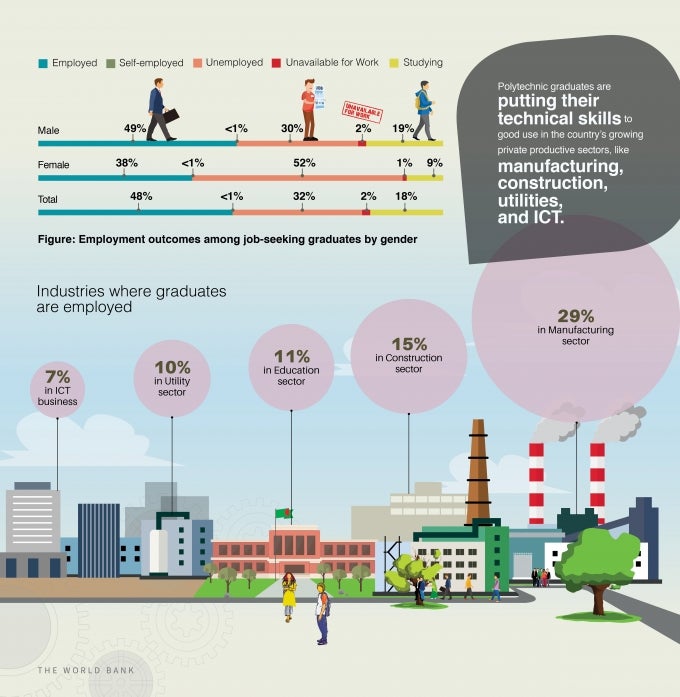This places significant importance on continuous skills training to prepare the workforce ready for future jobs. For this, what are the policy options for Bangladesh? How can the country move forward to ride the wave of the changing tide while leveraging the burgeoning youth population?
To answer these questions, and contribute towards the skills dialogue, an International Skills Conference was organized recently in Dhaka under the theme “Building Brands for Skills of Bangladesh”. The conference brought together national and international policymakers, skills development practitioners, academics, and researchers, from China, Singapore and India for two days of knowledge sharing and networking.

Organized by the Technical and Madrasah Education Division of the Ministry of Education of Bangladesh and supported by the Directorate of Technical Education and the Skills and Training Enhancement Project (STEP), the conference covered topics ranging from connecting skills and jobs to future proofing technical education institutions to raising the brand of skills of Bangladesh. After two days of knowledge sharing, two important themes emerged:
Firstly, the importance of high quality and relevant skills for the job market was a common theme across all countries. Some areas of intervention included partnerships with industry; access to modern teaching-learning facilities; teachers’ professional development; job-market specific curriculum including soft skills development; institutional capacity building and partnerships with private sector. The link between quality and skills of workers in local and global markets was more than evident.
Secondly, was the need for regional cooperation for improving and recognizing skills across South and East Asia. The development of a commonly recognized qualification framework would support mobility of skilled labor. Institution and national level cooperation were also discussed. To kick-start the initiative, around 84 Memorandum of Understandings (MoUs) were signed between national and international institutions focusing on a range of activities such as students and teachers exchange, technology sharing, online resource sharing platform, scholarships, hardware and software support.
The education minister Mr. Nurul Islam Nahid, MP, said, “Education is our priority but Technical and Vocational Education is the priority of the priorities,” showing the strong commitment of the government.
The conference provided a stepping stone to enhance investment in the country’s youth with necessary skills for jobs and transforming them into human capital.

For more insight on employment and skills training in Bangladesh, read the latest policy note, and a report on the employability of post-secondary students.


Join the Conversation